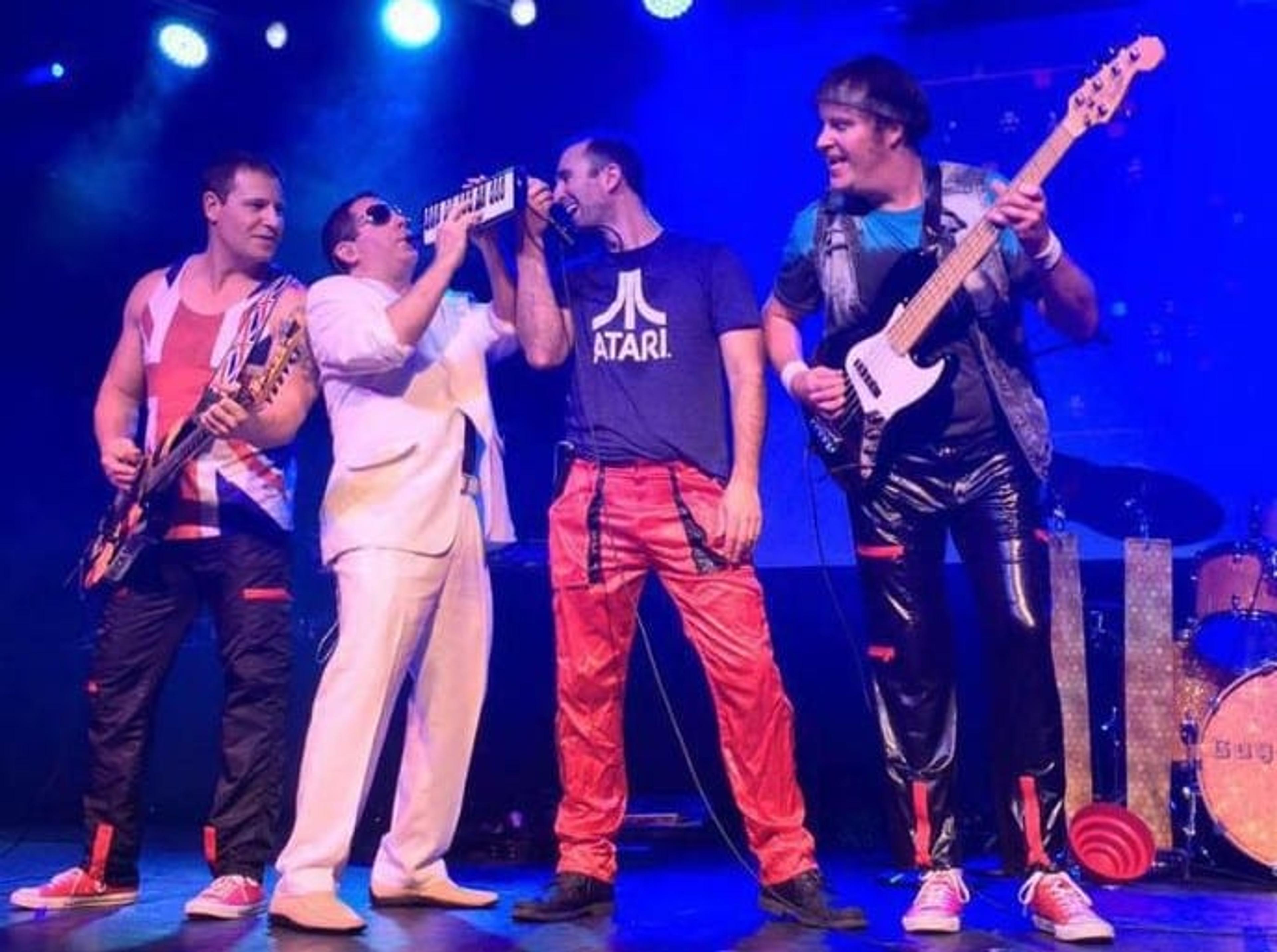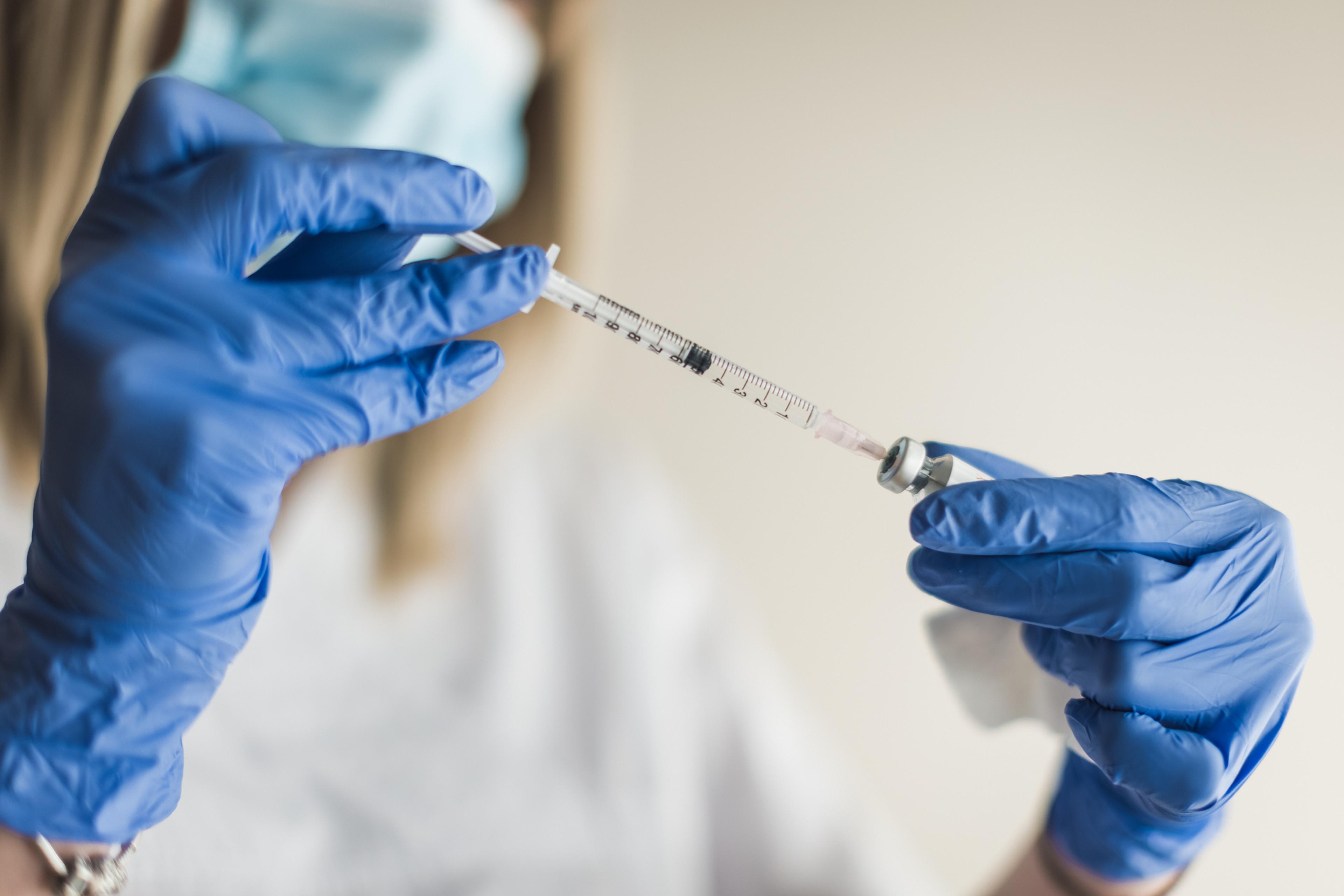Missing a Beat: Mega 80s Singer on COVID-19 Battle and Saving Live Music Venues
Julie Bitely
| 5 min read

It was a typical week at the Magic Bag in Ferndale. The club had three shows booked, with a sold-out performance set for Saturday, March 14 headlined by popular Michigan-based cover band Mega 80s.

Carey Denha, owner of the Magic Bag and Mega 80s lead singer, had been tracking news of the novel coronavirus popping up in Michigan. At the beginning of the week, Oakland County started reporting cases. After Thursday night’s show, the Magic Bag shut down and hasn’t reopened since. That Saturday, Denha had a runny nose and a persistent headache, later confirmed to be COVID-19. For him, the decision to shut down the Magic Bag – even before the state mandated that he do so – was the absolute right call, especially considering he would have been performing in front of a packed house. “That’s also the Saturday I would have sang in the Mega 80s, so at that point I was contagious,” he said. “If I would have played that show, I would have infected everyone at the Magic Bag – the band, the staff, the customers - I would have caused my own super-spreader event.”
Texting his goodbyes
After shutting down the Magic Bag and before his official diagnosis, Denha moved up to Bellaire, hoping to outrun the virus. He ended up bringing it with him. After riding out his symptoms alone for nearly two weeks – which included losing taste and smell, intense headaches, crippling fatigue, severe cramping from his heels through his back, pain in his arms and even hallucinations – he drove himself to the local hospital. He was transferred to Munson Hospital in Traverse City and remembers an eerie scene. Because so much was still unknown about the virus, they cleared all unnecessary staff so that Denha could be wheeled through the desolate hallways. “Everyone was absolutely terrified,” he remembers. “You could tell they didn’t know what they were dealing with because the disease was so new.” On March 26th, from his hospital bed, Denha texted the people he loved to let them know how much they meant to him. It was his way of saying goodbye, just in case he didn’t leave alive. “(I thought) that was the day I was going to die,” he said. But staff at Munson kept him alive, treating him with oxygen and hydroxychloroquine and monitoring his heart and energy levels. He said he could feel himself disappearing, but after a short stay he was discharged and well enough to play his guitar.
A long recovery
Despite feeling relatively normal, Denha’s body would continue to show signs it was fighting off the aftereffects of the disease. He developed pneumonia, which dramatically reduced his lung capacity and made him wonder if he would ever be able to sing again. At this point, he said he’s not 100% when it comes to singing because of the lung capacity it requires but hopes that by the time live music is a reality again, he’ll be able to perform. While Denha no longer has COVID-19, he does have side effects. Since recovering from the virus, he’s developed skin conditions. His arms also broke out in red dots and he’s experienced eczema. Bruises and lesions also seem to randomly appear. Denha says he still doesn’t have full mobility in his arms and is unable to lift much over a pound or two, plus he's experienced lingering brain fog, leaving him struggling to remember how to say certain words or put his thoughts into sentences during conversations.
Fighting to protect live music venues
Not only does Denha have to worry about the long-term health effects of COVID-19, he’s concerned about keeping his business afloat and the fate of other independent live music venues across the state and country. He took out loans and applied for grants. He sold his Detroit-area home for a quick cash infusion and resettled in Bellaire. Denha explains that music venues were the first to close and they’ll likely be the last to re-open. The economics of booking a show at half-capacity just don’t make sense, he said, and Denha vowed he will not re-open the Magic Bag until it’s safe to do so. “To me, it’s mostly about just being a good human and doing the right thing,” he said. “I don’t’ care about the money as much as I care about doing the right thing and the right thing to me is not getting people sick, so that’s why we’re closed.”

He’s hopeful that by the summer or fall of 2021, live music will return to his club and other stages, but right now, he’s got bills to pay for the business to remain viable. That’s why he’s banded together with grassroots organizations to advocate for additional federal and state financial aid aimed at the music industry. He said mom and pop clubs like his aren’t struggling financially because of mismanagement, they simply fell victim to the virus with no feasible way to bring in income they need to survive. After taking ownership of the Magic Bag in 2014, Denha has poured profits back into refurbishing the establishment and hasn’t taken a paycheck, relying on income from his Mega 80s gig and Tangerine Moon Productions, another company he leads. This would have been the first year he would have been able to claim personal income from the Magic Bag – now he predicts that won’t happen until roughly the middle of this decade. “This is life,” he said. “(These) are the cards that life has dealt for 2020 and I’m just going to play the best hand I can.”
Urging others to do their part
After his experience, Denha is discouraged that people still don’t seem to be taking the virus seriously. Members of his own family continued to go without masks and gather in groups after Denha spent time in the hospital. His uncle ended up dying from the disease. The Centers for Disease Control and Prevention urges everyone to continue to wear masks when they’re out in public, avoid crowds, stay six feet apart, wash your hands frequently and avoid gathering indoors with people outside of your household. Related:
- Beating COVID-19 After Losing a Loved One
- Life After COVID-19 Hospital Stay Can Get Rocky
- How to Overcome Cabin Fever
Main image photo credit: uschool Photos of Carey Denha, Mega 80s courtesy of Carey Denha





